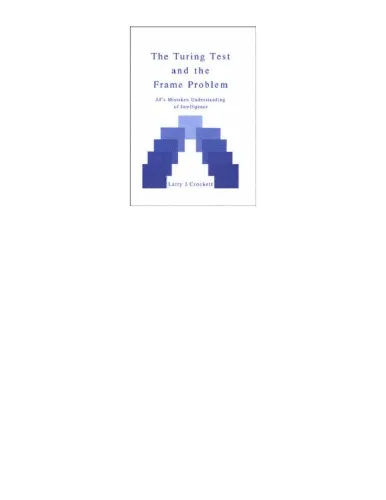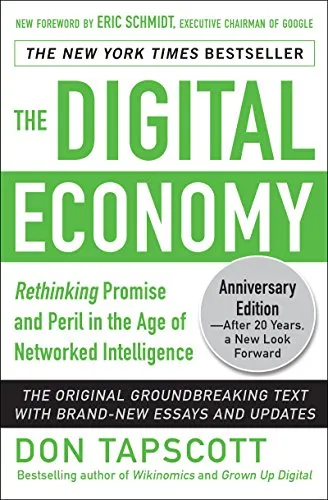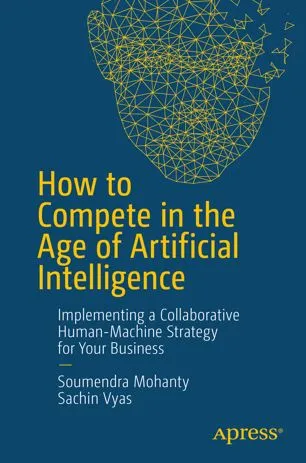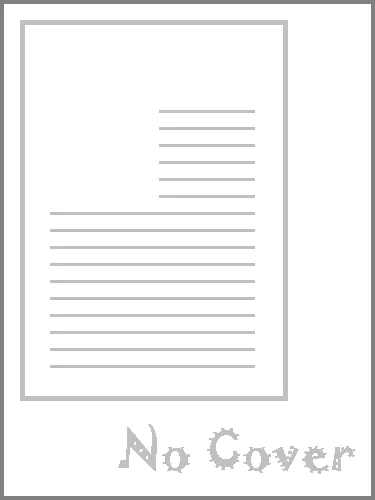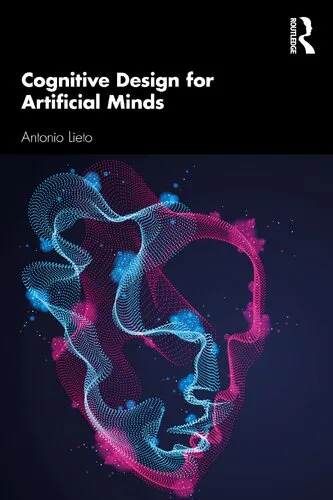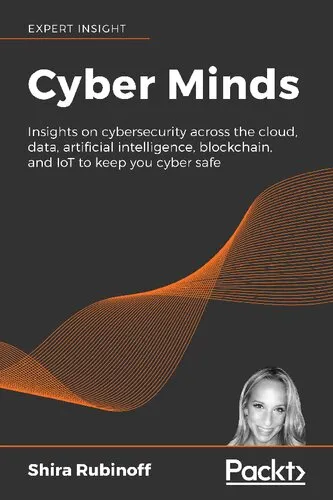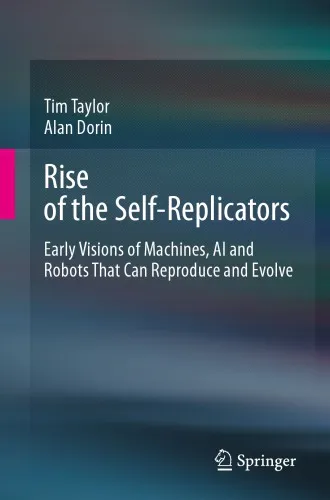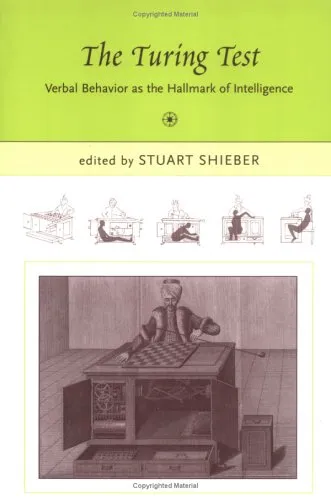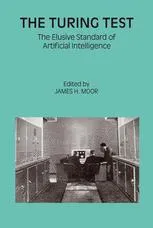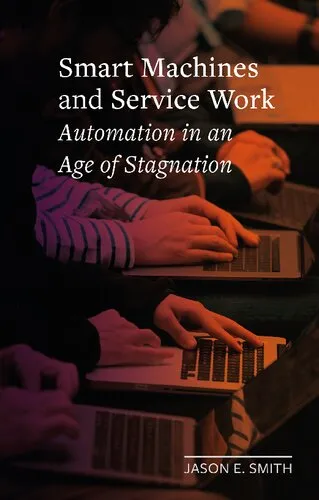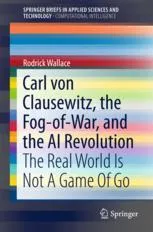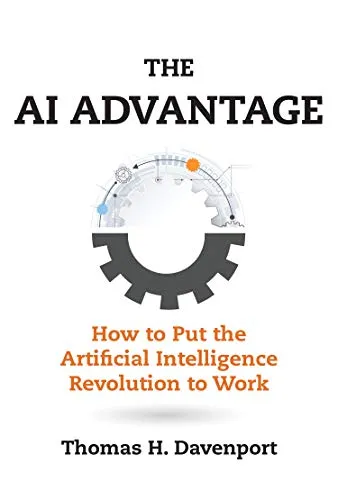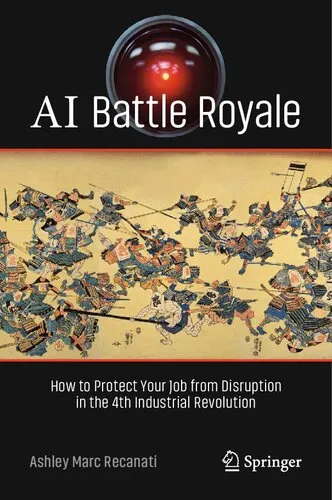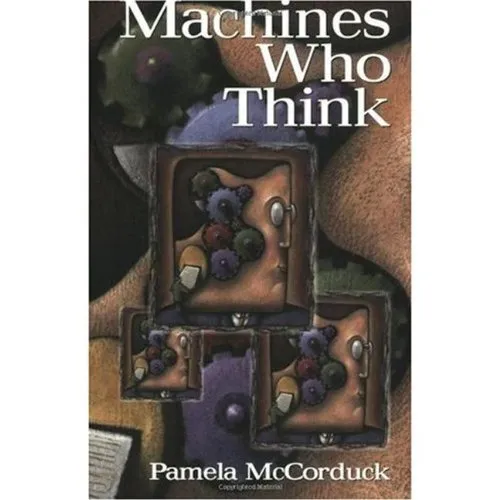The Turing Test and the Frame Problem: Ai's Mistaken Understanding of Intelligence
4.0
Reviews from our users

You Can Ask your questions from this book's AI after Login
Each download or ask from book AI costs 2 points. To earn more free points, please visit the Points Guide Page and complete some valuable actions.Related Refrences:
Persian Summary
Introduction to "The Turing Test and the Frame Problem: AI's Mistaken Understanding of Intelligence"
In the ever-evolving landscape of artificial intelligence, few topics spark as much debate and intrigue as the Turing Test and the Frame Problem. "The Turing Test and the Frame Problem: AI's Mistaken Understanding of Intelligence" delves deep into these themes, challenging prevailing notions and offering fresh perspectives.
Detailed Summary of the Book
The book embarks on a critical exploration of the Turing Test, originally conceived by Alan Turing in 1950, as a measure of a machine's ability to exhibit intelligent behavior indistinguishable from that of a human. Through a fascinating narrative, the book scrutinizes whether passing the Turing Test genuinely equates to demonstrating intelligence, or if it merely reflects the ability to mimic human-like responses.
Another key concept examined is the Frame Problem, a philosophical puzzle regarding how artificial systems can deal with myriad variables and situational changes without an explicit framework guiding their decision-making processes. This issue raises fundamental questions about AI's capability to understand and interact intelligently with the world, which the book addresses through a series of thought-provoking arguments.
Grounded in thorough research and theoretical analysis, the book posits that AI's current trajectory in understanding intelligence is flawed. It underscores the limitations of simulating human thought and posits alternative pathways to achieving genuine intelligence, transcending mere human imitation.
Key Takeaways
- Reevaluation of the Turing Test as a definitive measure of intelligence.
- Insight into the complexities and limitations posed by the Frame Problem in artificial intelligence research.
- A challenge to the prevailing AI paradigms and the proposition of novel approaches to understanding intelligence.
- An interdisciplinary approach that fuses insights from philosophy, computer science, and cognitive psychology.
Famous Quotes from the Book
"True intelligence cannot simply be measured by the ability to replicate human conversation, but by a system's capacity to comprehend and react to the unforeseen."
"The Frame Problem transcends technical challenge; it interrogates the very essence of what it means to understand and engage with a world of infinite contingencies."
Why This Book Matters
This book is pivotal for anyone invested in the future of artificial intelligence. It provides an essential critique of conventional metrics and methodologies, urging a reevaluation of the pathways we pursue in developing intelligent systems. By highlighting AI's current misconceptions, it sets the stage for a new era of research where the focus shifts from imitation to genuine understanding.
Academics, industry professionals, and enthusiasts alike will find value in its thorough analysis, challenging their perspectives and inspiring more nuanced discussions about the ethical and practical implications of AI technologies.
In essence, "The Turing Test and the Frame Problem: AI's Mistaken Understanding of Intelligence" is not just a critique but a call to action. It encourages us to rethink our approach and redefine what it truly means to create intelligent systems.
Free Direct Download
You Can Download this book after Login
Accessing books through legal platforms and public libraries not only supports the rights of authors and publishers but also contributes to the sustainability of reading culture. Before downloading, please take a moment to consider these options.
Find this book on other platforms:
WorldCat helps you find books in libraries worldwide.
See ratings, reviews, and discussions on Goodreads.
Find and buy rare or used books on AbeBooks.
1499
بازدید4.0
امتیاز0
نظر98%
رضایتReviews:
4.0
Based on 0 users review
Questions & Answers
Ask questions about this book or help others by answering
No questions yet. Be the first to ask!
